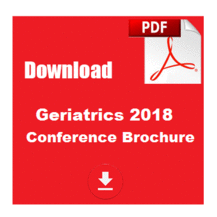
Tatiana Mestre
University of Évora, Portugal
Title: Social representations of violence on the elderly: An injustice and a badness
Biography
Biography: Tatiana Mestre
Abstract
Rationale: In contemporary society, ageing is a phenomenon that marks all developed societies. Portugal is one of the most ageing countries in Europe. Analyzing the social representations of violence on the elderly, from the current and past conceptions and daily practices of the elderly allows us to have access to the dominant constructions in society about the social phenomenon that is violence and the way it is socially and individually expressed by its main actors.
Objective: To analyze the social representations of a group of elderly people about violence on the elderly and the reasons why this violence occurs.
Methods: Exploratory and descriptive research with qualitative approach, supported by Theory of Social Representations. It was attended by 237 elderly people aged 65-96 years, from the project “Ageing Safely in Alentejo” from University of Évora. The Free Speech Association technique was used and data were processed through qualitative data analysis software. All the ethical
procedures of human research were followed.
Results: In social representations of violence on the elderly the words most evoked by the elderly were injustice, to which are added the mistreatment, badness, bad, lack of respect, sadness, horrible and abandonment. About the reasons that lead to violence on the elderly the words such as lack of respect, lack of education and badness are predominant. These terms refer to the social devaluation of the elderly and their role in today's society, as in the representations about violence.
Conclusions: The social representations of these elderly people about violence and their reasons points to the stereotypes associated with the prevalent ageism in our society, where the social devaluation of the elderly dominates the daily life conceptions and practices.

